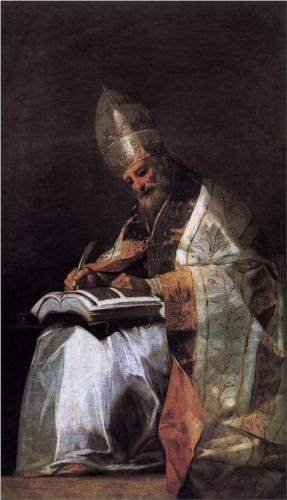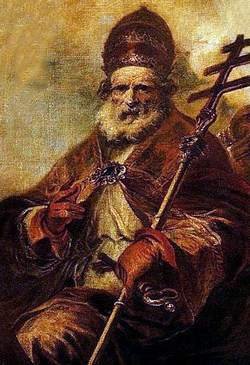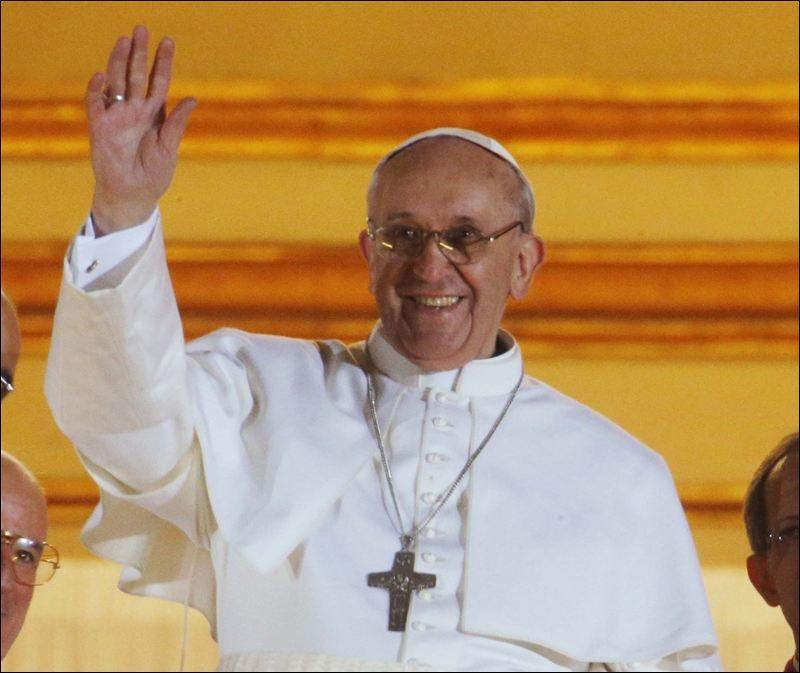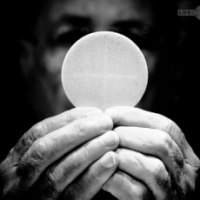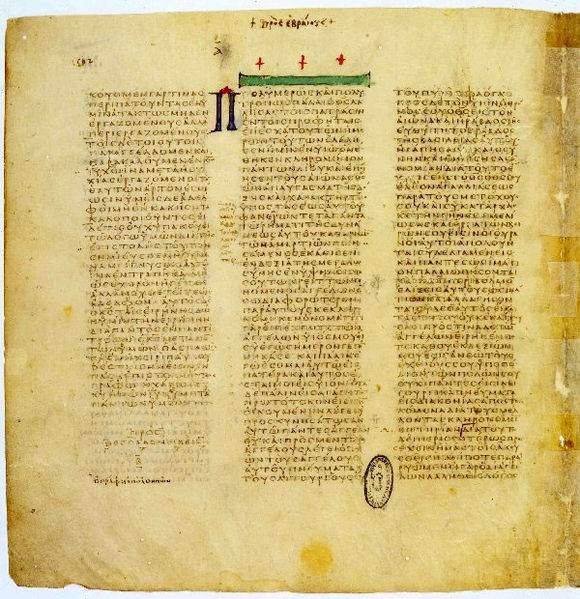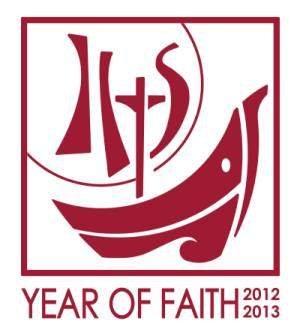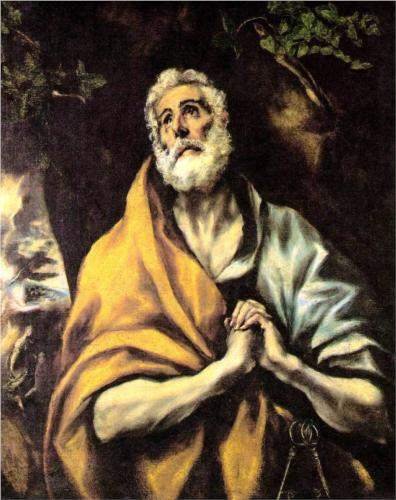
El Greco, The Repentant Peter (c. 1600). (WikiPaintings.org)
Wowzers, you get two posts by me in just two days! I couldn’t help myself. I wrote this piece in response to another post, and come to think of it, I don’t think I’ve ever posted this argument here before.
The title “pope,” to which you objected on the grounds that it can’t be found in Scripture, is only an honorific one; “papa” in Latin is an affectionate term along the lines of “daddy.” The office is another matter. The “pope” is more formally the bishop of Rome, and the office of bishop (ἐπίσκοπος [episkopos]; episcopus in Latin, literally an “overseer”) is quite scriptural (1 Timothy 3, Philippians 1:1, Acts 20:28).
The Catholic Church does not claim, as you suppose, that the successor of Peter is the “earthly head” of the Church: as you say, there is only one Head, and that is Christ. Cf. the Catechism:
“Christ is the Head of this Body”
792. Christ “is the head of the body, the Church.” He is the principle of creation and redemption. Raised to the Father’s glory, “in everything he [is] preeminent,” especially in the Church, through whom he extends his reign over all things.
807. The Church is this Body of which Christ is the head: she lives from him, in him, and for him; he lives with her and in her.
The office of Peter and his successors is merely as the Church’s pastor, its shepherd, the vicar (stand-in, substitute, or representative — not replacement) of Christ:
936. The Lord made St. Peter the visible foundation of his Church. He entrusted the keys of the Church to him. The bishop of the Church of Rome, successor to St. Peter, is “head of the college of bishops, the Vicar of Christ and Pastor of the universal Church on earth” (CIC, can. 331).
Surely you don’t object to pastors, called by God to be the shepherds of their churches? Just as God never left His people Israel without His authoritative voice — through prophets, priests, and kings — Jesus will never leave His people the Church without an authoritative shepherd. And Scripture affirms that He did not.
I think an honest reading of Scripture requires one to acknowledge that Jesus did delegate His authority, first to the Twelve Apostles as a group and then to Peter in particular. The references I could cite are numerous, but I will give you just a few of the most prominent and explicit:
-
Matthew 10:1: And He called to Him His twelve disciples and gave them authority over unclean spirits, to cast them out, and to heal every disease and every affliction.
Matthew 10:5–8: These twelve Jesus sent out, instructing them, “Go nowhere among the Gentiles and enter no town of the Samaritans, but go rather to the lost sheep of the house of Israel. And proclaim as you go, saying, ‘The kingdom of heaven is at hand.’ Heal the sick, raise the dead, cleanse lepers, cast out demons. You received without paying; give without pay.” v. 40: “Whoever receives you receives me, and whoever receives me receives him who sent me.”-
By Jesus’s own words, His gave authority to His disciples, and they received something from Him: the authority to carry out their ministry in His name. He sends them out as His representatives: “Whoever receives you receives me.”
-
-
Matthew 18:18, to the Twelve, in the context of dealing out church discipline: “Truly, I say to you, whatever you bind on earth shall be bound in heaven, and whatever you loose on earth shall be loosed in heaven.”
-
Binding and loosing are rabbinical terms and concepts, which, according to the Jewish Encyclopedia, mean “to forbid and permit” authoritatively with regard to doctrinal and disciplinary pronouncements, such that “they [those with this authority; in the context of the article, the Pharisees] possessed and exercised the power of tying or untying a thing by the spell [i.e. word or formula] of their divine authority, just as they could, by the power vested in them, pronounce and revoke an anathema upon a person.” “This power and authority, vested in the rabbinical body of each age or in the Sanhedrin, received its ratification and final sanction from the celestial court of justice.” I don’t know how you read this, but it sounds very clear to me, first that this authority was Jesus’s to invest in whom He chose (surely the Pharisees would have considered this a gross blasphemy), and second that He invested that authority in His Apostles.
-
-
Matthew 16:17–19, to Peter solely (using singular pronouns and verbs), after Peter confessed Jesus as the Christ: And Jesus answered him, “Blessed are you, Simon Bar-Jonah! For flesh and blood has not revealed this to you, but my Father who is in heaven. And I tell you, you are Peter, and on this rock I will build my church, and the gates of hell shall not prevail against it. I will give you the keys of the kingdom of heaven, and whatever you bind on earth shall be bound in heaven, and whatever you loose on earth shall be loosed in heaven.”
-
Protestants like to reject the “upon this rock” statement with an argument involving the supposed difference between πέτρος and πέτρα in the Greek — but this argument does not hold any weight in Greek, as even most knowledgable Protestant scholars of Greek admit. Jesus’s wordplay between Peter’s name, explicitly stated, “You are Peter (Rock),” and the “rock” upon which Jesus said He would found His Church, mirrors grammatically Peter’s statement: “You are the Christ.”
What is more, that argument does not deal with the other, equally important parts of Jesus’s pronouncement. Jesus gives three separate blessings to Peter and Peter alone which cannot be interpreted in any way but as an explicit investment of authority:
-
You (Peter) are “Rock,” and on this rock I will build My Church, and the gates of hell shall not prevail against it.
-
I will give you (Peter) the keys of the kingdom of heaven [mirroring “the gates of hell”].
-
Whatever you (Peter) bind on earth shall be bound in heaven, and whatever you loose on earth shall be loosed in heaven [linked implicitly to the “keys”].
The fact that each is clearly directed to Peter negates the argument of some that the “rock” of the statement was only Peter’s faith or his confession.
-
-
-
Isaiah 22:20–22, the passage which Jesus was clearly referencing in His speech to Peter, as acknowledged even by Protestant exegetes (cf. ESV Study Bible): [To Shebna, steward of the royal palace:] “In that day I will call my servant Eliakim the son of Hilkiah, and I will clothe him with your robe, and will bind your sash on him, and will commit your authority to his hand. And he shall be a father to the inhabitants of Jerusalem and to the house of Judah. And I will place on his shoulder the key of the house of David. He shall open, and none shall shut; and he shall shut, and none shall open.”
-
This passage describes a stripping of authority from one to whom it had been entrusted and an investment of that authority in someone new. In the context of the passage in Matthew and its application to Peter, the authority of binding and loosing with divine approval (“opening” and “shutting” the gates of the kingdom of heaven, with the key), which had been entrusted to the Jewish rabbinical body and the Sanhedrin, was now being removed and entrusted to Peter and the Apostles in Christ’s new order — from the rabbinical, teaching authority of the Jewish people to the episcopal, teaching authority of the Church, the Magisterium. Peter is installed as steward over the house of Judah, to exercise order over the household [the Church] in the absence of the king [Christ]. Christ certainly foreshadowed this stewardship in His parables about wise and foolish stewards or servants and their care for the affairs of the house while their master is away (Luke 12:35–48, Matthew 24:45–51). And what is more: he shall be called a father to the house of Judah: just as the bishop of Rome is called a Father to the Church: he is called the pope (papa), or the Holy Father. Given this understanding, the kissing of a ring — a very ancient sign of respect and acknowledgement of authority, not of worship — begins to make a bit more sense.
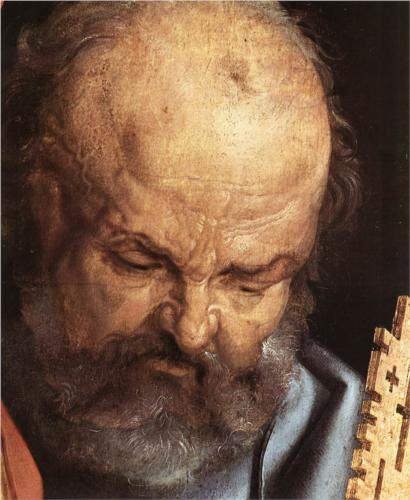
St. Peter, by Albrecht Dürer (1471–1528). (WikiPaintings.org)
-
-
John 20:21–23, Jesus appearing to the Apostles after His Resurrection: Jesus said to them again, “Peace be with you. As the Father has sent me, even so I am sending you.” And when he had said this, he breathed on them and said to them, “Receive the Holy Spirit. If you forgive the sins of any, they are forgiven them; if you withhold forgiveness from any, it is withheld.”
-
Just as the Father sent [Jesus], Jesus sends the Apostles in continuation of His ministry and authority, “to make disciples of all nations” (Matthew 28:18–20) and continue doing what He was doing. Just as Jesus has the authority to forgive sins (Mark 2:10–12) — an authority with a clear association to physical healing (cf. James 5:13–16) — He imparts that authority to the Apostles — with an implicit connection to that of “binding and loosing,” but rightly exceeding any authority before claimed by any other rabbi.
-
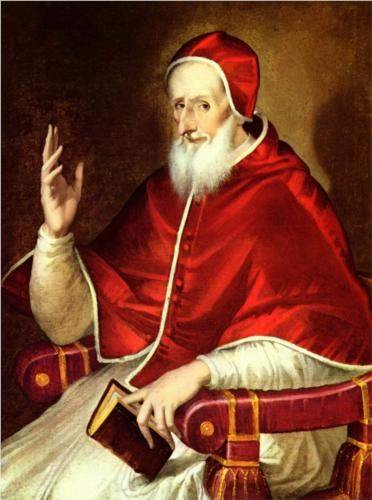
El Greco, Portrait of Pope Pius V (c. 1605) (WikiPaintings.org)
Evidently, we Catholics interpret Scripture more literally and realistically than you, and accept it more readily for what it actually says in its plainest sense. I don’t think that leaves you much ground to stand on from which to accuse the Catholic Church of “unbiblical practices.”

